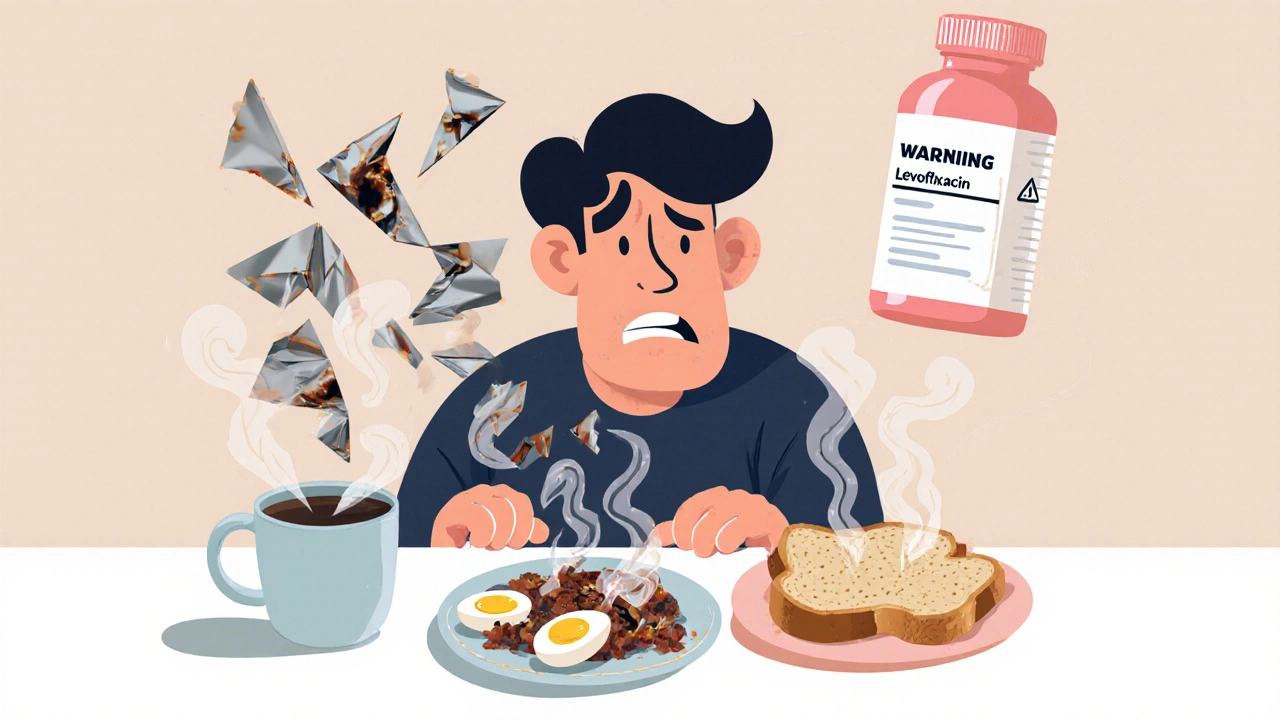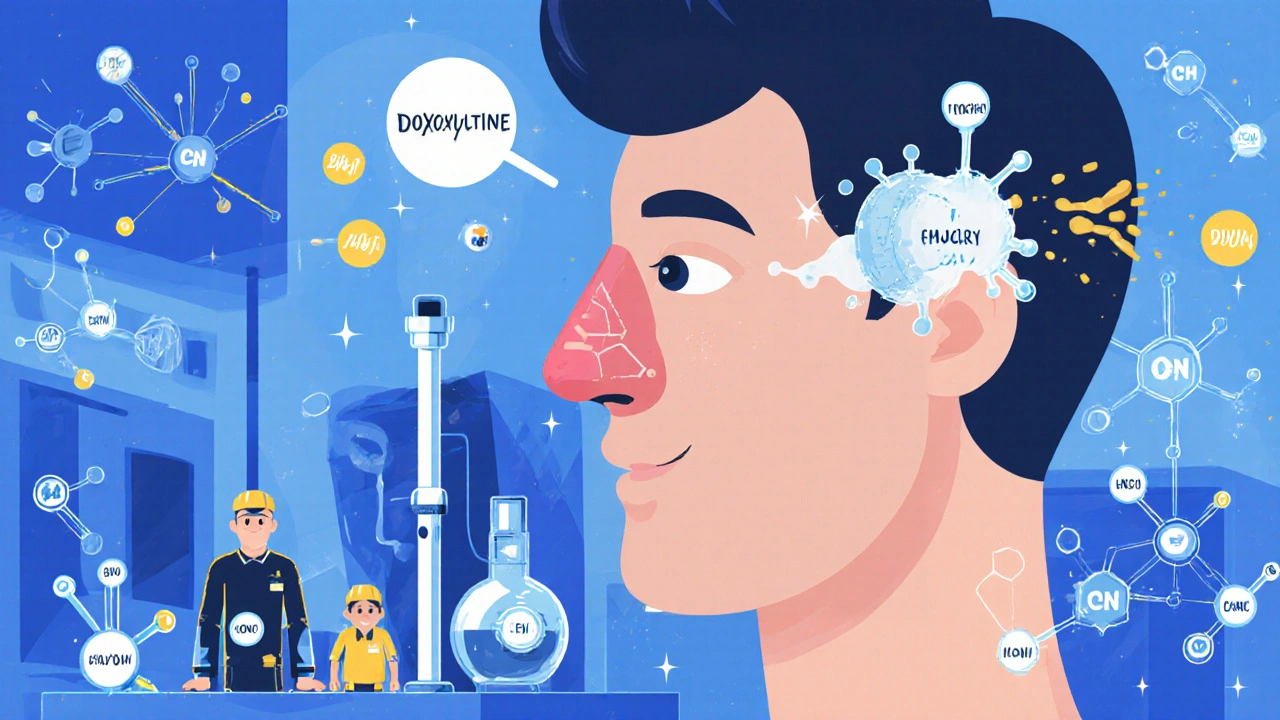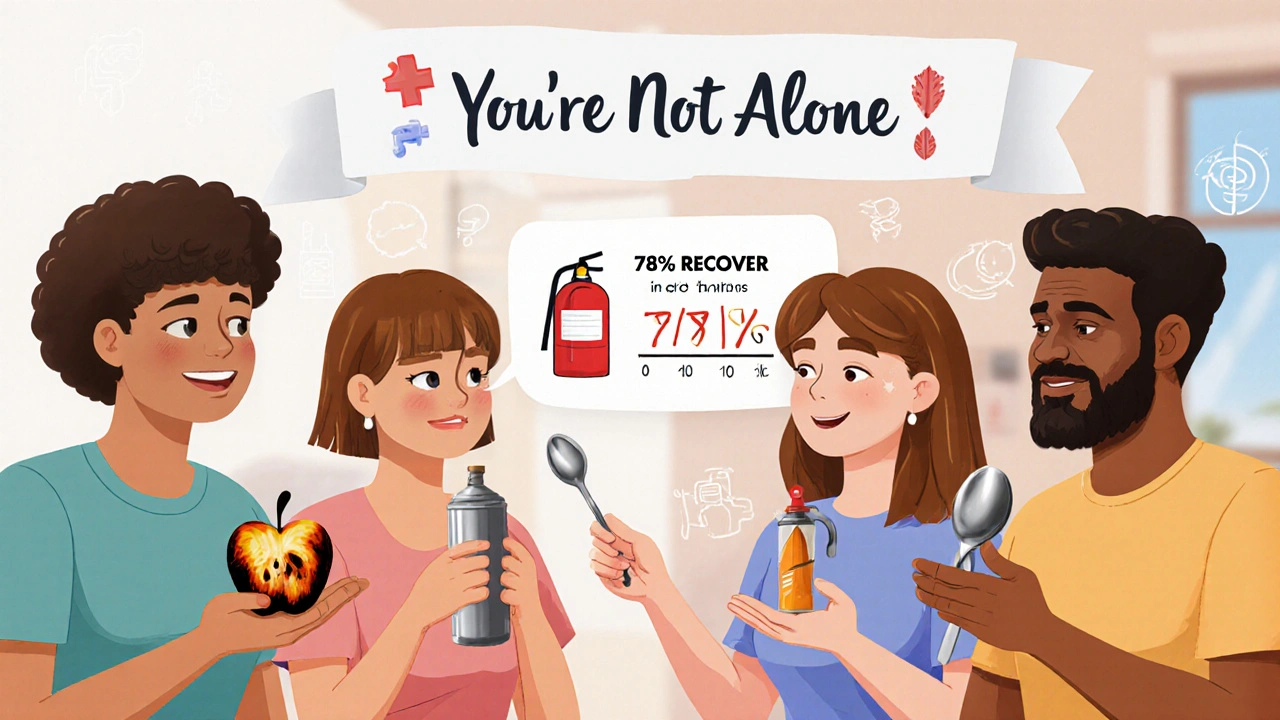Medications That Change Your Sense of Smell: What You Need to Know About Dysosmia
 Oct, 31 2025
Oct, 31 2025
Have you ever taken a medication and suddenly noticed that your favorite coffee tastes like metal, or that bread smells like rotten eggs? You’re not imagining it. This isn’t just a weird coincidence-it’s a real, documented side effect called dysosmia. It’s when your sense of smell goes wrong: familiar scents turn foul, phantom smells appear out of nowhere, or food loses all flavor. And it’s more common than most doctors admit.
Up to 500 medications can cause this. That’s not a typo. Antibiotics, blood pressure pills, antidepressants, and even heart medications are on the list. Yet most people don’t connect their changed sense of smell to their prescriptions. Instead, they think they’re getting sick, aging, or developing a neurological problem. The truth? It might just be the pill they took last week.
What Exactly Is Dysosmia?
Dysosmia isn’t just losing your sense of smell-that’s called anosmia. Dysosmia means your smell system is broken in a different way. It’s like a radio playing static. The signal is still there, but the sound is twisted. You might smell cigarette smoke when no one’s smoking. You might bite into an apple and taste something like burnt plastic. Or you could walk into your kitchen and gag because your pasta smells like garbage.
This isn’t just annoying-it’s dangerous. If you can’t smell gas, smoke, or spoiled food, you’re at risk. It also wrecks your appetite. Studies show that up to 30% of people with medication-induced dysosmia lose weight because food becomes unbearable. One woman lost 8 pounds in three weeks after taking levofloxacin. Her food tasted like bile. She stopped eating. She didn’t know why.
Which Medications Cause Smell Changes?
Some drugs are far more likely to mess with your smell than others. The biggest culprits are antibiotics, especially the ones ending in “-floxacin” or “-mycin.”
- Fluoroquinolones: Levofloxacin, moxifloxacin, and ciprofloxacin. These chelate zinc, which your smell receptors need to work. Symptoms often show up within 7-14 days.
- Macrolides: Azithromycin and clarithromycin. These mess with calcium and magnesium in your taste cells. One Reddit user reported parosmia for 22 months after azithromycin.
- Tetracyclines: Doxycycline. Same zinc issue. Easy to miss because it’s so common.
- Cardiovascular drugs: Midodrine, used for low blood pressure, can cause metallic taste within minutes of taking it.
- Neurological drugs: Carbamazepine (for seizures) and baclofen (for muscle spasms) have been linked to complete loss of taste and smell.
Even IV drugs like lidocaine or iron infusions can trigger instant metallic tastes. It happens fast-sometimes within seconds. That’s because these drugs hit your taste buds directly through the bloodstream.
Here’s the kicker: some people get it after one dose. Others take it for months before anything happens. There’s no way to predict who will be affected. It’s random, frustrating, and poorly tracked.
Why Does This Happen?
Your nose isn’t just a passive sensor. It’s a complex chemical lab. Smell receptors are proteins on nerve cells that bind to odor molecules. When a drug interferes with that process, things go haywire.
Two main mechanisms cause dysosmia:
- Receptor Blockage: Drugs like doxycycline bind to zinc, which your receptors need to reset after smelling something. Without zinc, the receptors stay stuck-leading to persistent bad smells.
- Receptor Overactivation: Some drugs, like sertraline (an antidepressant), slip into cell membranes and keep smell signals firing even when there’s no odor. Your brain thinks you’re smelling something… but you’re not.
Other drugs interfere with G-proteins, calcium channels, or enzymes that normally shut off smell signals. It’s like having a stuck gas pedal in your nose. The signal never turns off.
What makes this worse is that most doctors don’t think to ask about smell changes. A 2020 review in the Cleveland Clinic Journal found that clinicians rarely bring it up during medication reviews. So patients suffer in silence, thinking it’s just “getting older” or “stress.”

How Long Does It Last?
The good news? Most cases get better.
According to a 1995 study still cited today, 78% of people recover their normal smell within three months of stopping the drug. But 22% don’t. That’s where things get complicated.
Some people report improvement in just a few weeks. Others struggle for over a year. One patient on Reddit described a 22-month battle with parosmia after azithromycin. She lost 15% of her body weight. She couldn’t eat anything without vomiting. She didn’t know it was the antibiotic until she found a support group online.
Recovery isn’t guaranteed. And the longer it goes untreated, the harder it is to fix. That’s why early recognition matters.
What Can You Do?
If you suspect a medication is causing smell changes, don’t panic-but don’t ignore it either.
Here’s what to do:
- Track your symptoms. When did they start? Did they begin after starting a new drug? Write down what smells are wrong and what foods taste like.
- Don’t stop your meds cold. Some drugs, like blood pressure or seizure meds, can be dangerous to quit abruptly. Talk to your doctor first.
- Ask about alternatives. If you’re on levofloxacin for a sinus infection, maybe amoxicillin could work instead. If you’re on carbamazepine, ask if another anticonvulsant is an option.
- Request a smell test. The University of Pennsylvania Smell Identification Test (UPSIT) is a 40-item test that measures your ability to identify common scents. It’s quick, non-invasive, and can confirm if your smell system is impaired.
Some people find relief with zinc supplements-but don’t take them without talking to your doctor. Too much zinc can cause copper deficiency and make things worse. A 2017 editorial in Chemical Senses warned that indiscriminate zinc use lacks solid evidence.
There’s also emerging hope. Clinical trials are testing drugs that target TRPM5 channels-key players in taste and smell signaling. These could one day reverse drug-induced dysosmia directly.

Why Isn’t This Better Known?
It’s a systemic blind spot.
Drug trials rarely measure smell or taste changes as side effects. The FDA only started encouraging companies to include these endpoints in 2021. Before that, if a patient said, “My coffee tastes like metal,” the response was often: “That’s not a real side effect.”
Pharmacovigilance systems don’t require reporting smell changes. That means most cases vanish into the data void. A 2022 JAMA survey found only 37% of primary care doctors routinely ask about smell during medication reviews. Among otolaryngologists? 78%. The gap is huge.
And then there’s the stigma. People don’t want to say, “I can’t smell my own breath,” or “I think my husband smells like garbage.” It sounds crazy. But it’s not. It’s biology.
Where to Find Help
You’re not alone. There are resources:
- The Smell and Taste Treatment and Research Foundation has a directory of specialists who treat chemosensory disorders.
- Fifth Sense (a UK-based nonprofit) runs monthly virtual support groups for people with medication-induced smell loss. Over 150 people attend each session.
- UpToDate and MedLink Neurology publish updated lists of medications linked to dysosmia (updated biannually).
If you’re struggling, reach out. Many people find comfort just knowing others have been through it. One woman wrote on a forum: “I thought I was going crazy. Then I found 147 other people on Reddit who said the same thing. That’s when I knew it wasn’t me-it was the drug.”
What’s Next?
The field is changing. In 2024, the European Medicines Agency will require smell and taste testing in all Phase III trials for antibiotics and heart meds. The NIH just funded $4.7 million in research on this topic in 2023. Pharmaceutical companies are starting to pay attention-AstraZeneca even patented a treatment for drug-induced smell loss in 2022.
But until then, awareness is your best tool. If you’re on a medication and your world smells wrong, speak up. Ask your doctor: “Could this be dysosmia?”
It’s not in your head. It’s in your nose. And it can be fixed.
Elizabeth Nikole
November 1, 2025 AT 16:44LeAnn Raschke
November 2, 2025 AT 12:45Adorable William
November 3, 2025 AT 08:29Suresh Patil
November 4, 2025 AT 10:42Ram Babu S
November 4, 2025 AT 18:38Kyle Buck
November 5, 2025 AT 01:14Amy Craine
November 5, 2025 AT 17:14Alicia Buchter
November 6, 2025 AT 12:54MaKayla VanMeter
November 6, 2025 AT 15:40Doug Pikul
November 6, 2025 AT 16:11anthony perry
November 8, 2025 AT 10:47